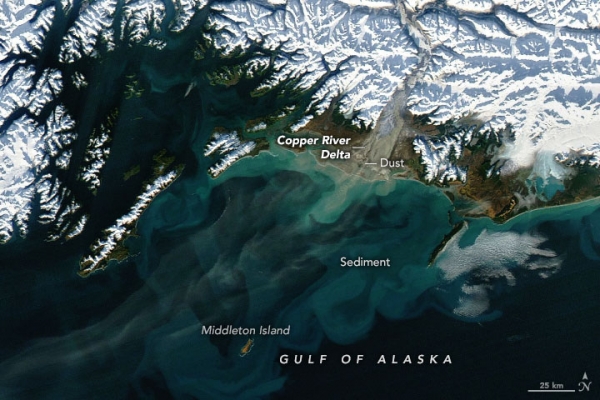Dust storms are common in dry, sandy places like the Sahara, but they also happen beyond the planet’s desert regions. In autumn, plumes of silt and sand occasionally blow from the Copper River Delta and over the Gulf of Alaska.
One of these Alaskan dust storms was in progress on November 17, 2022, when the Moderate Resolution Imaging Spectroradiometer (MODIS) on NASA’s Aqua satellite acquired this image. Plumes from the Copper River Delta—and farther upstream in the valley—are most common in autumn, when water levels are low, winds are strong, and snow has not yet blanketed the entire floodplain.
Winds are channeled through narrow mountain gaps and blow offshore. These strong “gap winds ” can quickly dry out the floodplain’s sediments and then loft the particles into the air. Most particles are likely fine-grained loess, which formed as glacial ice moved over the area and ground the underlying rock into a fine silt, or “glacial flour.”
Read More: NASA Earth Observatory
Photo Credit: NASA Earth Observatory


